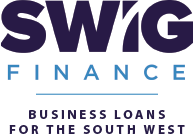As a Community Development Financial Institution (CDFI), delivering social and environmental impact is in our DNA.
But how many other organisations can safely say they that they too are proactively supporting these causes?
Research shows that consumer behaviour is changing, and businesses can no longer leave these causes on the back-burner.
In fact, a recent survey conducted by Deloitte reports that 43% of respondents now choose a brand based on their environmental values. A further 34% base their decision-making on ethical values.
The latest trend we are seeing in this area is an unprecedented rise in B Corp organisations.
To find out more about the trend, our business manager, Mike Chapman, explores.

What are B Corps?
B Corp is to business what Fair Trade is to chocolate. They are businesses that give as much consideration to their social and environmental impact as they do to their financial returns.
B Corporation certification (assessed by the not-for-profit B Lab) is given to organisations who achieve at least a minimum score against a set of social and environmental standards.
B Corps have been around in the US since 2007, but in recent years there has been a surge in companies considering it ranging from the largest corporates through to start ups. Increasingly, we are seeing a growing movement of companies in the South West looking to embrace B Corp status including Pukka Herbs, Finisterre and Cornish design agency Leap.
Why should you consider it?
A commitment to the environment and society is increasingly on everyone’s agenda and the market is increasingly starting to expect more from businesses. Whether that be investors looking for more impactful returns or millennials demanding more purpose in their jobs or customers demanding more than just a cheap price, conscious about where and how their products are made.
Certified B Corporations achieve a minimum verified score on the B Impact Assessment—an assessment of a company’s impact on its workers, customers, community, and environment and make their B Impact Report transparent. Certified B Corporations also amend their legal governing documents to require their board of directors to balance profit and purpose.
As an impact lender, SWIG looks beyond just numbers. The combination of third-party validation, public transparency, and legal accountability help Certified B Corps build trust and value.
How to become a B Corporation?
B Corporation status can be achieved by receiving accreditation from B Lab (a non-profit organisation). Certification requires a score of at least 80 (out of 200) against 5 areas of impact: Governance, Community, Workers, Environment and Customers.
The initial step is to complete an on-line assessment (B Impact Assessment). After completing this assessment, B Lab then assesses and verifies that your score meets the certification standards.
Certification needs to renewed every three years and there is an annual fee, scaled according to revenue and starting at £500. Clearly there is also the cost of time in achieving certification, and so not all organisations will necessarily be ready to make the jump.
Cornwall has recently launched the ‘B-Local’ initiative to promote the work of the growing B Corporation movement. You can find out more here.
About SWIG Finance
SWIG Finance is the South West’s leading Community Development Financial Institution. We are passionate about bringing social and economic benefits to people and places in the South West.
We do this by providing support and finance to Start Ups and growing SMEs that can create and secure employment opportunities.
To find out more about our mission as a CDFI, please click here.
For an informal discussion about your funding requirements, get in touch with our friendly and professional team to find out how we can help: info@swigfinance.co.uk / 01872 227 932.
